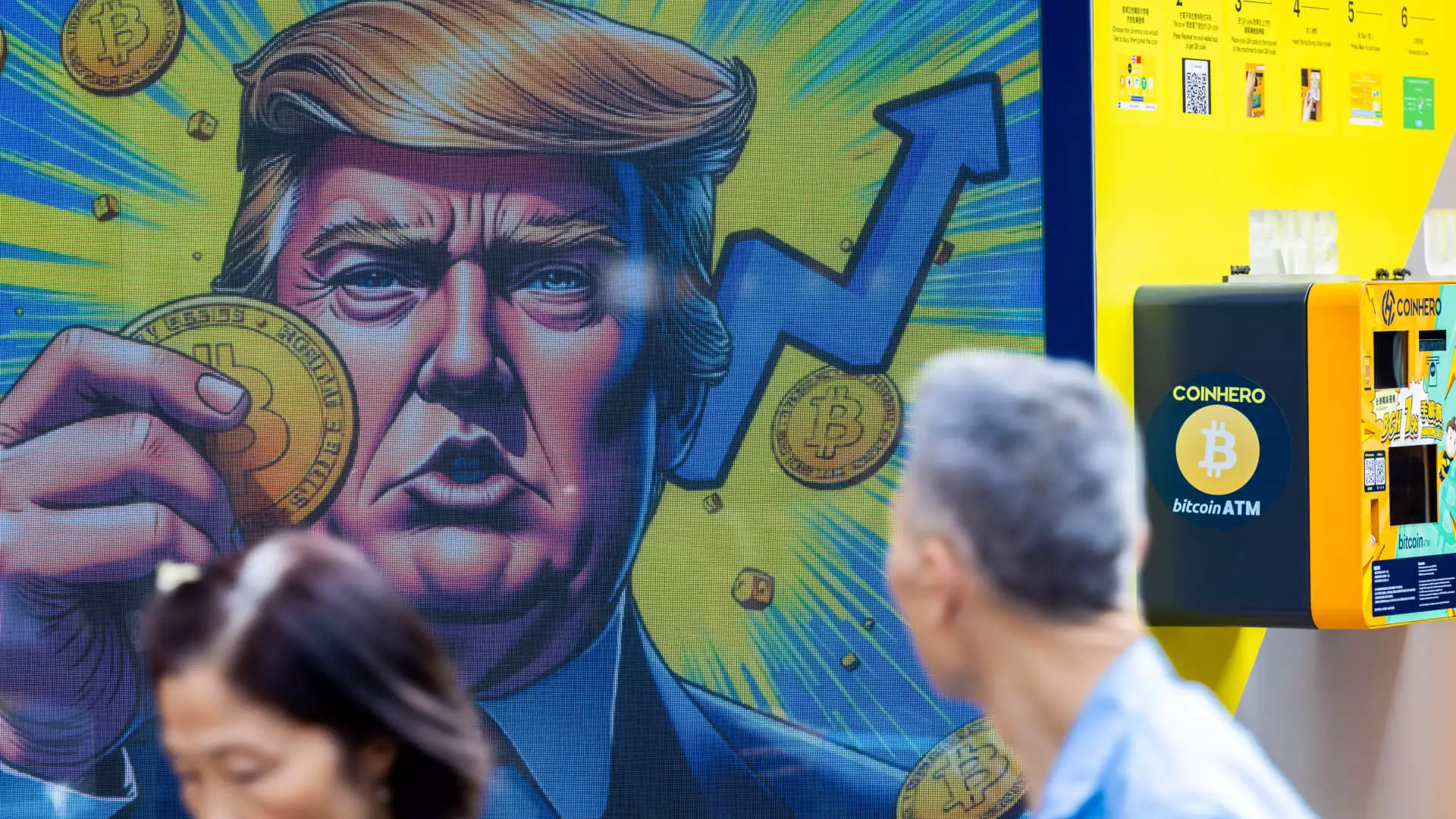The cryptocurrency market is laden with opportunities and risks, but the emergence of the $TRUMP token showcases a unique blend of both, underscored by political influence and ethical concerns. Launched in January 2023, this memecoin, which boasts a market value exceeding $2.7 billion after a recent spike, has drawn attention not just for its financial potential but for the controversial activities surrounding it. Recently, President Donald Trump’s initiative to host a dinner for top holders of the token ignited debates around the brandishing of political power for financial gain—a sentiment echoed fervently by various political analysts.
The announcement of an exclusive dinner occasion, scheduled for May 22, positioned $TRUMP not merely as a cryptocurrency but as a mechanism for monetizing political access. It raised significant eyebrows and questions about the ethical ramifications of using presidential clout to foster investment in a digital currency. The fact that the top 220 token holders are promised more than just a meal with Trump—namely a VIP tour of the White House—definitely blurs the lines between politics and commerce.
Insights into Financial Benefit and Criticism
The financial ramifications of this initiative cannot be understated. Data from Chainalysis indicates that a staggering total of around $324.5 million in trading fees has been generated alongside the token’s rise, a considerable portion of which flows back to insiders, including affiliates closely tied to the Trump Organization. Critics like Democratic Senator Chris Murphy have characterized the promotion as an emblem of corrosive financial ethics, referring to it as “the most brazenly corrupt thing a President has ever done.” His assertion serves as a microcosm of bipartisan concern regarding how political figures can exploit their visibility and influence for personal gain, particularly within the unregulated confines of cryptocurrency.
It is essential to unpack the workings of this crypto token, which fully embodies the principles of memecoins—assets buoyed more by social media hype and cultural phenomena than by any intrinsic value. In this light, the promotion of the $TRUMP token is perplexing; it intertwines speculative finance with the iconography of political leadership, raising alarm bells about the potential exploitation of public office.
Ethical Concerns and Regulatory Loopholes
While ongoing criticism emphasizes the ethical breaches suspected in this undertaking, it shines a light on the significant gap in regulatory frameworks governing cryptocurrency and political funding. Notably, the intricacies of criminal conflict-of-interest statutes do not apply to the President, which has allowed Trump to sidestep conventional ethical standards adhered to by many of his predecessors.
This chilling aspect of the $TRUMP token points to the pressing need for a re-evaluation of how cryptocurrency intersects with political influence and finance. As Campaign Legal Center’s director of ethics pointed out, this amalgamation threatens to create an environment ripe for “pay to play” scenarios, in which monetary contributions directly translate to political access—a situation that inherently undermines democratic norms. The absence of legal constraints renders the President’s financial maneuvers trappings of malfeasance rather than mere entrepreneurial ventures.
Moreover, the leaderboard mechanism showcasing token holders obscures the identities of those financially backing this venture. This opacity raises additional ethical concerns, especially amid allegations that some investors may have ties to foreign entities or unregulated exchanges. Such revelations deepen the motivations behind what seems to be a mere fundraising endeavor cloaked in political appeal.
Cryptocurrency Policy Shifts and Market Impact
As the regulatory landscape evolves, the $TRUMP token epitomizes a turning point marked by fluctuating governmental stance towards cryptocurrency. After initially opposing digital assets during his presidency, Trump’s pivot during the 2024 election campaign not only reshaped his narrative but also positioned him as a champion of crypto innovation. By characterizing Democrats as antagonistic towards technological advancement, he aims to galvanize support from a sector that has historically favored him with substantial financial backing.
Interestingly, Trump’s affiliation with various financial ventures—both through $TRUMP and other planned projects like the $MELANIA coin—illuminates how his strategies are diversifying revenue streams while deftly sidestepping stringent oversight which had previously tightened under other administrations. Whether this marks a sustainable model for political figures in the digital age remains to be seen, but the trajectory raises several red flags.
Utilizing political influence to reshape financial landscapes can open a Pandora’s box of ethical and legal dilemmas. A reformation of cryptocurrency regulations seems imperative to navigate these treacherous waters, lest we allow the intertwining of democracy and profit to eclipse the integrity of our political institutions.


Leave a Reply